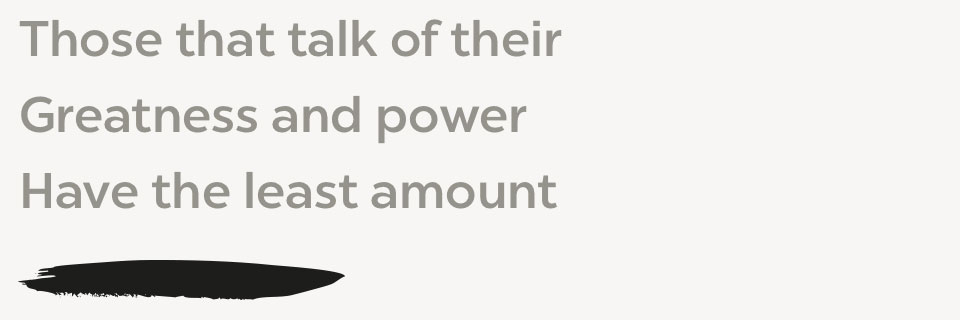If you haven’t noticed, the entire Own It series has been about taking a long look in the mirror and claiming ownership of your faults. Good, bad, or indifferent. Business leadership, personal relationships, and all.
I know, it’s cliché, but here’s yet another: “There are two kinds of people in the world.”
Over-responsible people and under-responsible ones. Everyone errs on one side or the other. Over-responsibility is largely undiagnosed in our world because we value martyrs, selflessness (whatever that is), and we think that generosity means putting yourself last.
The irresponsible in our world hold the over-responsible up as heroes. They have to, or else they’d be forced to look at their own irresponsibility. Most of the hundreds of leaders with whom I have worked are over-responsible, and they grow their businesses to a point where they have the capacity to shore up the under-responsibility of their people…then it plateaus. It stops growing precisely at the point where they cannot spread themselves any thinner. Business leadership of that kind can only take you so far.
Maybe you can relate. So, what do you do then?
Easy. You harness that business leadership awareness and teach people how to become more responsible, by showing them where they are being irresponsible. This is what management is. On the other hand, working around incompetence and tricking people into doing better work without ever giving them direct, personal feedback is supervision. It’s the perfect thing for any over-responsible martyr who wants to stay in control of everything and come home to complain how hard they work every day. Read more about that here.
In content, responsibility is a key business leadership quality. But in context, the greater skill is the ability to assess the over/under-responsibility balance in oneself and others…and change it so it’s better balanced. You want neither to take on issues that are not yours, nor avoid the issues that are. And you want to be able to train others to do the same. There are few more important qualities that allow for the evolution of a human being, much less the success of a business.
But question someone’s responsibility or integrity and what happens? You encounter defensiveness almost immediately. This is because the greatest strategy for the irresponsible is to decide de facto that they are a “responsible person” as if it is like being “tall” or “allergic to peanuts”—something that is and forever will be. I call this the Responsibility Paradox. Real responsibility includes the spaciousness to look for irresponsibility in oneself, because obviously at any moment someone can suddenly be irresponsible. Listen for the tones with which people retort when you question them. The truth needs no defending, and someone who thinks otherwise is simply not trainable.
Now, you benevolent dictator, do they belong on your team?


